Taiwan is more than just the Taipei 101 building and the “Made in Taiwan” label. In a previous blog post, we shared 10 surprising things about Taiwan, and now we’re back to this blog series with more aspects that make Taiwan stand out, especially when compared to the United States.
One area where Taiwan shines is its exemplary healthcare system, known for being one of the best healthcare in the world and very affordable as per our own experience. A key feature that sets it apart is the innovative healthcare appointment and queuing system. Unlike the US, where companies like One Medical emerged to fix a broken customer experience and require costly memberships for efficient user experiences, Taiwan’s system sets a global example. Let’s explore it further!
At the heart of Taiwan’s healthcare appointment system lies the National Health Insurance (NHI) card. This smart card revolutionizes patients’ access to medical services by serving as a comprehensive medical record. It enables patients to visit any healthcare provider within the NHI system. With the convenience of electronic appointment scheduling, patients can book their appointments in advance, reducing wait times and ensuring timely care.
Booking an appointment
Booking an appointment is simple (and when the website is not in English, Google Chrome do a good job at translating the page for you).
Step 1: Visit the hospital’s (or clinic) website
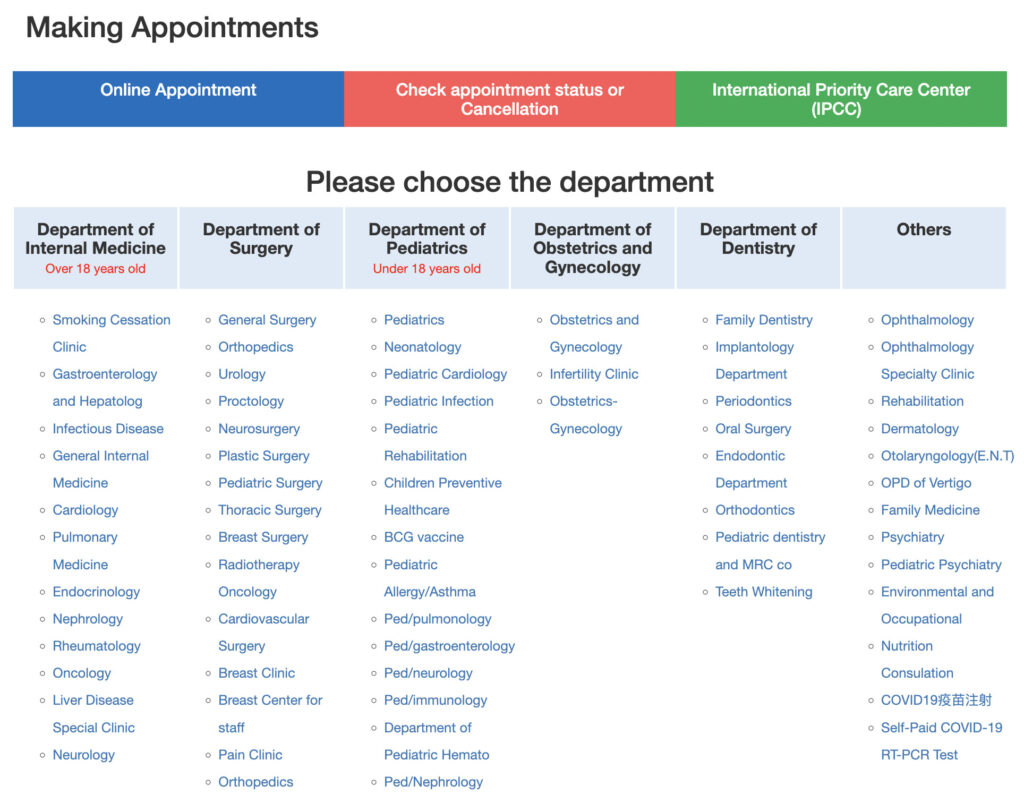
Step 2: Select your department, and choose your preferred doctor and time slot.
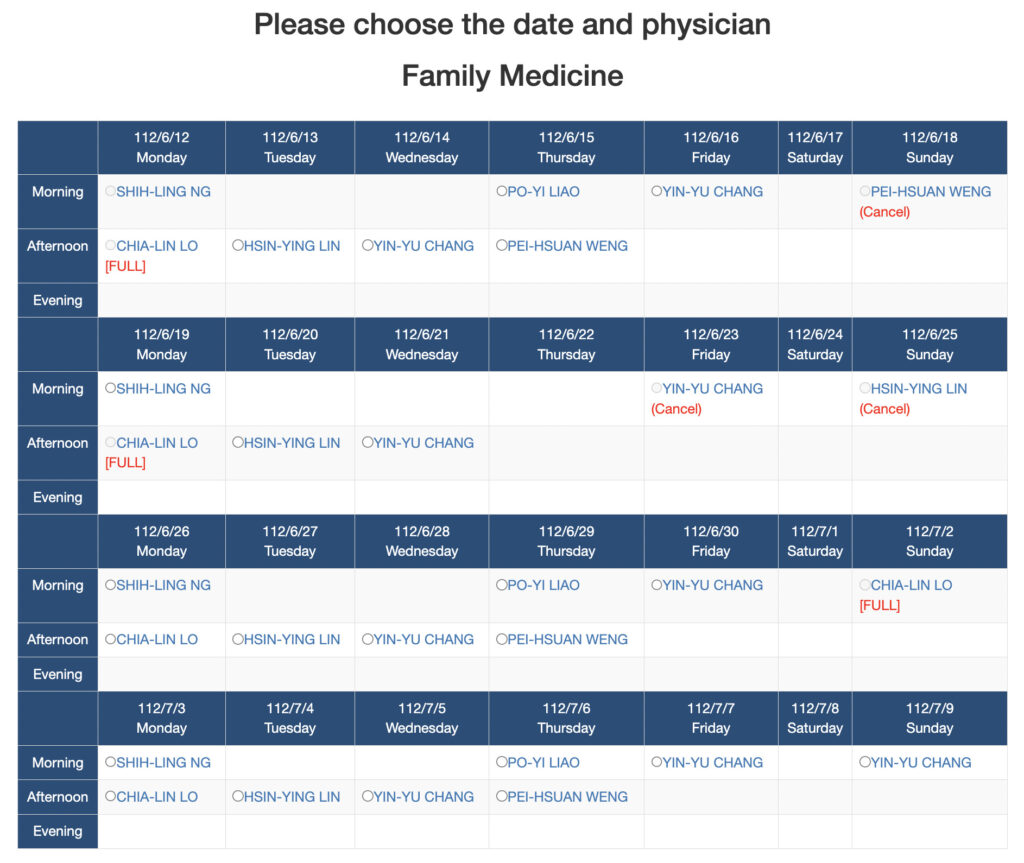
Step 3: Confirm your booking
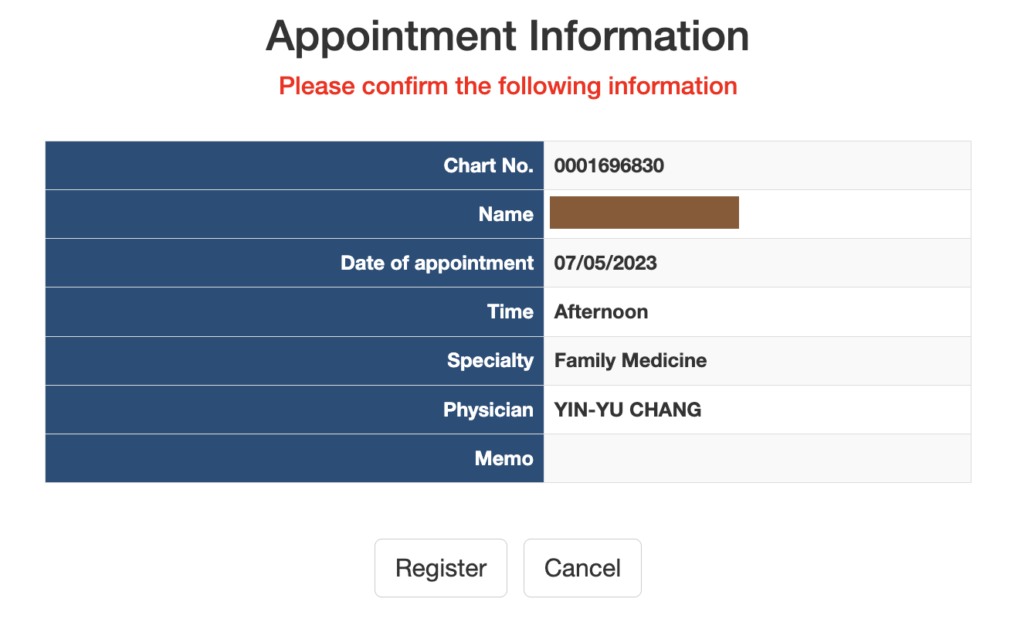
Step 4: Receive your appointment confirmation including a registration number and a designated appointment window.
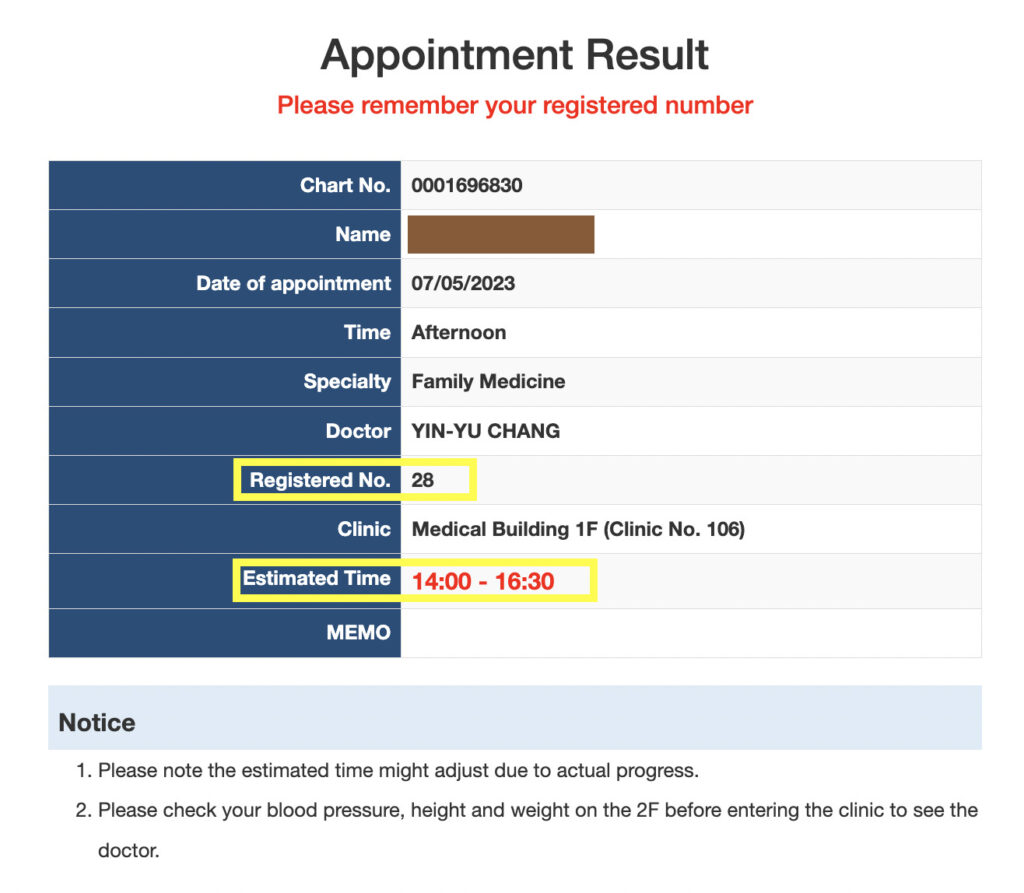
Efficient Queuing System
On the day of your appointment, when you arrive at the hospital/clinic, you will find a monitor similar to this one for you to register.
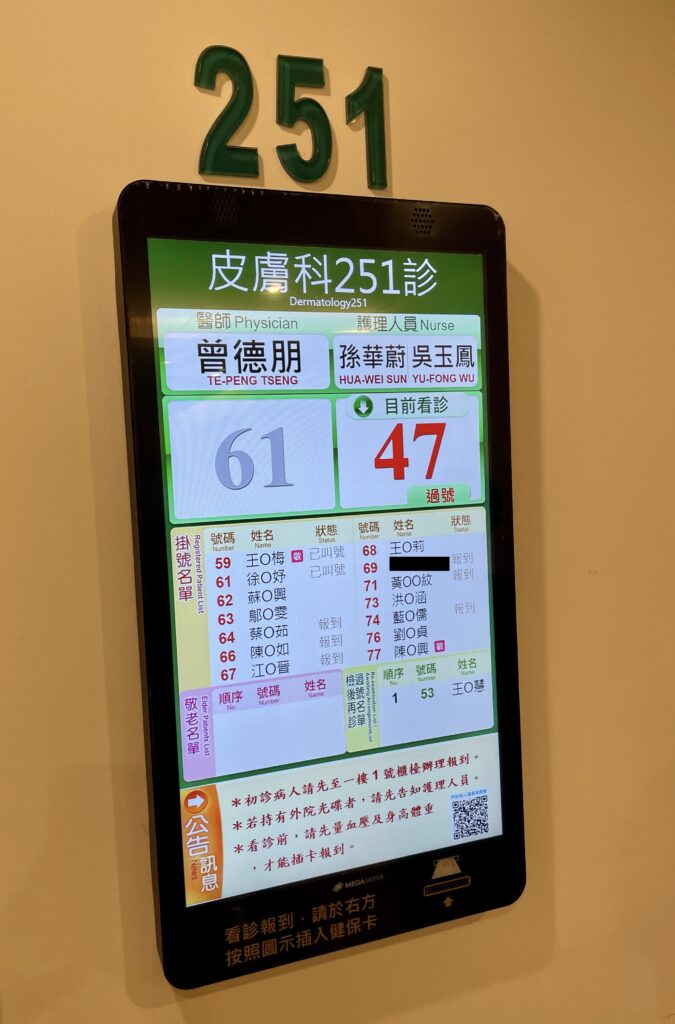
To register, all you need to do is insert your NHI card into the card reader on the panel. In cases where the hospital or clinic doesn’t have this system, the lobby staff will take your NHI card to register you. The advantage of the NHI system is that all the information about your appointment is stored online, eliminating the need to provide any confirmation documents.
Once registered, you’ll be called to in the order of your registration number. Typically ranging from 0 to 100, your registration number determines your place in the queue. For example, a registration number of 28 would likely fall within the first hour of the booking window.
Upon reaching the waiting room for your doctor, you’ll see a panel displaying the patient order. Inside the office, the doctor and nurse share the same pool of patients. When you arrive, scan your NHI card in the card reader to register for your appointment. Your status will then be updated in the registered patient section, confirming your check-in.
There are also two special lanes to be aware of:
- one for elderly patients, who receive priority and will be seen as soon as the arrive
- one for “late” patients, who arrived after their registration number was called. (from experience it seems that these patients pretty quickly after they arrive).
But does waiting still exist? Yes, waiting is a part of the process, especially if you arrive too early and other patients are still registering. However, you can check the real-time queue progress online before your appointment (either via the website of the hospital/clinic or on LINE, a popular messaging app in Taiwan). This allows you to estimate any unexpected delays or faster-than-expected queue movement.
Benefits and Advantages
Taiwan’s healthcare appointment and queuing system offer numerous benefits. It prioritizes timely access to care, resulting in great patient experience and health outcomes. By planning appointments in advance, patients can reduce uncertainty and effectively manage their care. Booking earlier (of course!) ensures a smaller registration number and greater control over the visit time.
Comparison to the USA
Compared to the United States’ healthcare system, Taiwan’s appointment and queuing system provide significant advantages. While the US struggles with fragmented healthcare access and long waiting times, Taiwan offers universal access to care and leverages technology to streamline patient flow. The NHI card and electronic appointment scheduling significantly reduce administrative inefficiencies and waiting times, ensuring prompt access to necessary care.
While Taiwan’s healthcare system is highly regarded, it’s important to acknowledge that no system is perfect. Despite its notable advantages, there are some drawbacks worth considering like language barrier (with some doctors), increasing healthcare costs (though monthly premiums are still at 25 USD for ppl without a job!) and potential overcrowding in certain areas.
Our Bottom Line
Taiwan’s healthcare appointment and queuing system exemplify the country’s commitment to accessible and efficient care for its citizens. By leveraging technology and implementing streamlined processes, Taiwan has established a model for other countries to follow.
As we reflect on the successes of Taiwan’s healthcare system, it becomes evident that prioritizing accessibility, efficiency, and patient-centered care leads to better healthcare outcomes for all. We’ve been thoroughly impressed and truly appreciate having control over our visits when needed.
Interested in other articles about Taiwan? Check out How to Apply for the Employment Gold Card, How to Apply for Permanent Residency (APRC), How to Open a Bank Account in Taiwan, How to Get a Driver’s License in Taiwan, Chinese Medicine in Taiwan, 10 Surprising Things You May Not Know About Taiwan, and 3 Day Biking Itinerary on the East Coast of Taiwan.
Now, we’d love to hear from you. How would you rate the healthcare appointment and queuing system in your country? Does it provide a similar approach to enhancing the patient experience? Please share your thoughts and experiences in the comments below as we would love to hear from you!
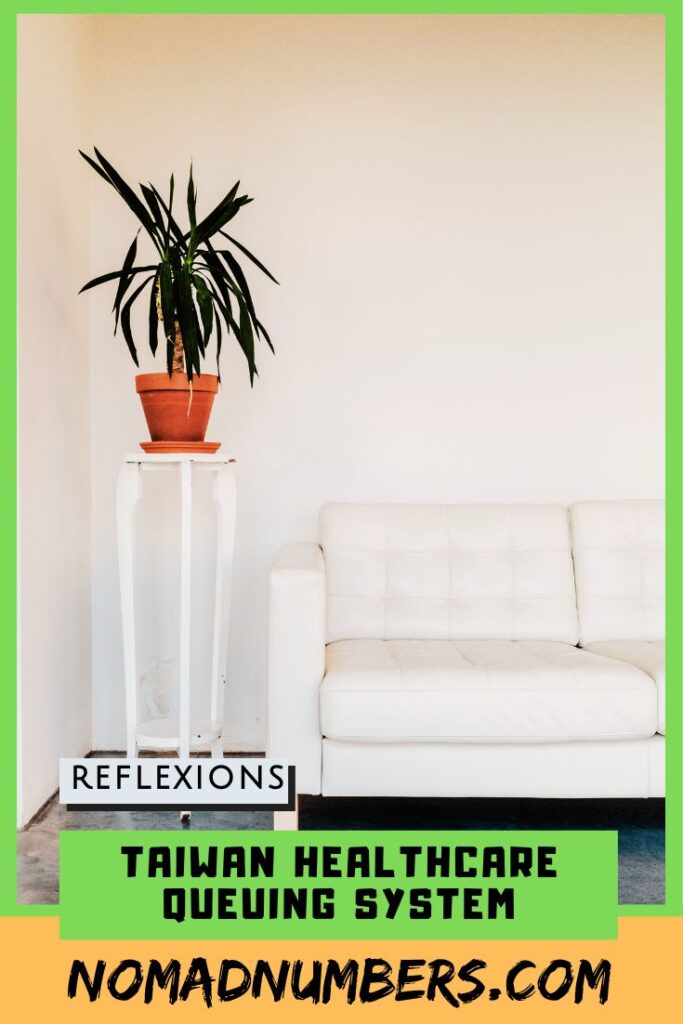



2 Comments
Christine · June 14, 2023 at 1:41 pm
Dentistry and implants are covered. Sign me up
Mr. Nomad Numbers · June 15, 2023 at 9:41 am
Hi Christine,
Are implants fully covered in Taiwan? I would be surprised if there is no out of pocket on them.
As for preventive care, the premium is pretty small. Like a few USD from our experience which is pretty minimum.
Mr. NN